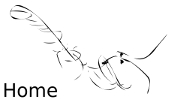Living Data:
Relationship
2017 Conversations
Disclaimers, Copyrights and Citations
Conversations/Index 2010 2011 2012 2013 2014 2015 2016 2017 2018 2019 2020 2021 2022 2023 2024
"Few will doubt that humankind has created a planet-sized problem for itself.
No one wished it so, but we are the first species to become a geophysical force,
altering Earth's climate, a role previously reserved for tectonics, sun flares, and glacial cycles."
E. O. Wilson, 1998. Consilience: The Unity of Knowledge
p. 277-278
Landscape
Monday 13th March 2017.
Artist and social scientist Dr Jeremy Walkertells how he first trained to be an artist
and then as a writer about climate change and the history and philosophy of science.
Jeremy is Lecturer in Environment, Culture and Society in the Social and Political Sciences Program at the University of Technology Sydney (UTS). He holds a Bachelor of Fine Arts from the University of New South Wales, a BA Communications (Social Inquiry, Hons) from UTS, and a PhD (History and Philosophy of Science) from UTS.
TRANSCRIPTION
LR: So these are your drawings...
JW: Yeah. That's Mootwingee, yeah.
The thing that struck me about art school was that I went to do landscape and figure - quite traditional genres - but I was always moved by beauty more than anything else and that's where I found it, so then I kind of began to realise how impoverished the land was, and how much of its history was hidden in it, but then at the same time that motivation for art making was very much frowned upon when I was at art school... the pleasure in finding beauty and things like that. That kind of romantic impulse was really looked down upon. You had to be very clever and conceptual and somehow to be related to detaching the signifier from the signified, or something like that.
I kind of believe in the beauty of the world, the aesthetic response to the world, and whatever responsibility comes in behind that... That's how I ended up here in the social and political sciences.
The very idea of the environment always struck me as a very strange idea, because it's somehow 'over there' or 'outside', but is always for me present inside as much as it is over there and outside. I was disappointed with the art education I got. Some of it was very good, but it didn't really align with what I was thinking of at the time. Particularly the scepticism of the post-modernists towards science in general, but environmental politics in particular, I found that quite strange and bizarre so I came back [to study] and wrote a social science paper to try and work those problems out. I ended up leaving the art world behind I suppose, for a while, and did a Doctorate in the History and Philosophy of Science, particularly history and philosophy of economics, ecology and energy physics, because that's where climate change is happening. It's happening in the way that the laws of physics interact with the biological and geological history of the earth, and the way that we ... so, yeah, I'm quite fascinated by that still, and that's what I'm writing about still.
But coming from the arts, I've never lost the interest in ... the sense that it's really in the arts that things become meaningful... yeah, so that's why I'm involved in that side of things as much as I can be.












